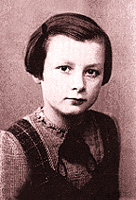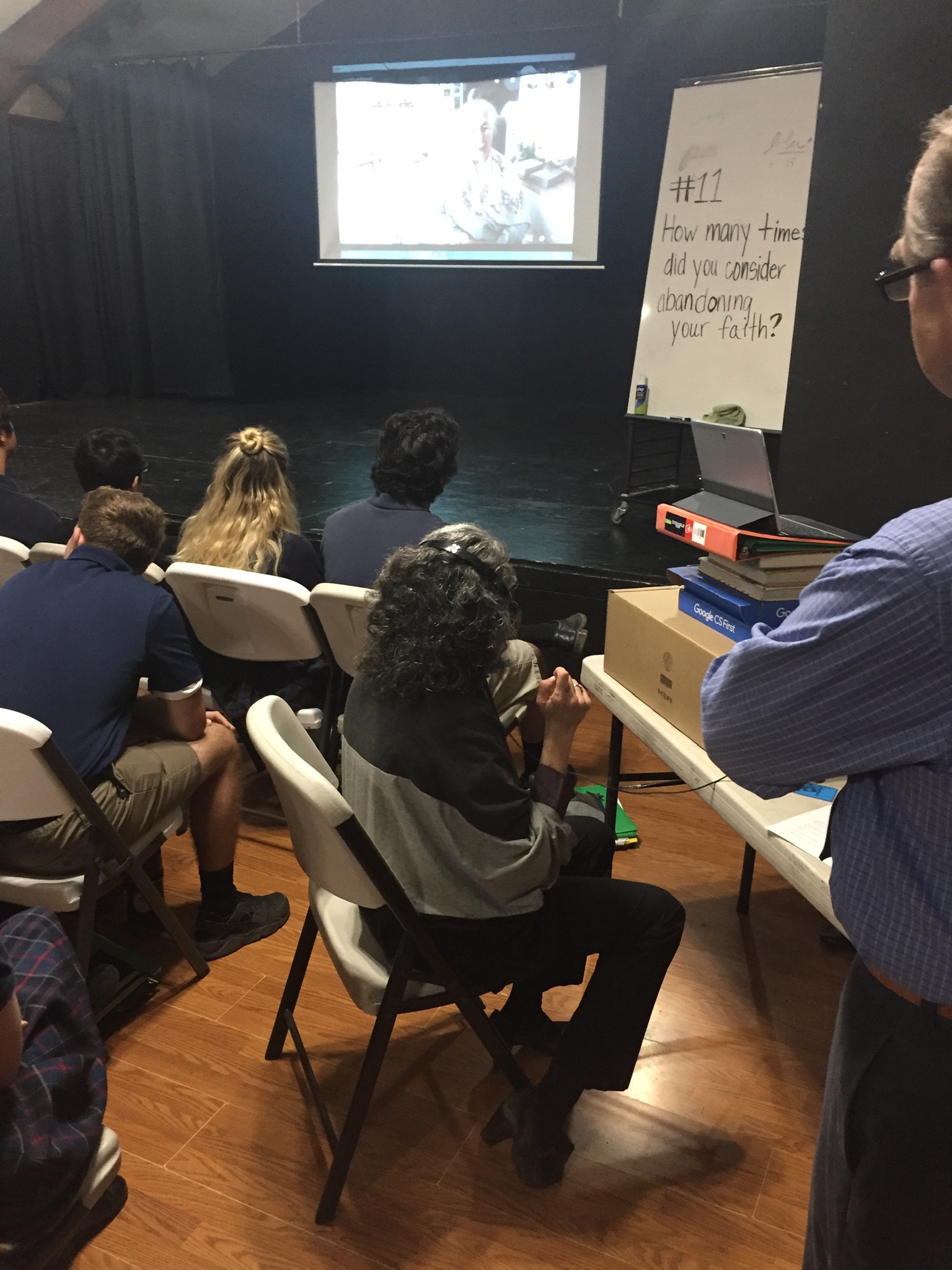By Grace Newman
“Heil Hitler.” “Heil Hitler.” Imagine hearing this several times a day, every day. Now imagine having to say this several times a day, every day.
This phrase was not only common to hear and to be a part of, but it was actually required throughout Germany during World War II.

One girl, however, would not stand for this. Simone Liebster, born on the border of France and Germany and subject to life during this menacing era, refused to imitate others and say something she did not believe in.
As a Jehovah Witness, Simone and her people were being persecuted by the Nazis. She was fully separated from her family by the time she was 12 when she was arrested and placed in a penitentiary home. Her mom was soon after forced into a concentration camp, and her dad had been taken from her a year before her arrest.
To ask Simone about some of the injustices she went through and how she dealt with them, TPA students were given the opportunity of an hour-long Skype session with the honorable Holocaust survivor. Dr. Salcido and helpful representatives from the Arnold Liebster Foundation ensured the smooth process of the interview. Fifteen juniors were chosen to ask Simone questions.
We were able to learn many things about her life, but one of the most startling was her harsh penitentiary home experience. She said that she and the other 38 girls “had no right to speak.” For the two years she was held captive there, there was to be no communication, no books, no writings, nothing to be shared between the girls. If one were to speak, they were to be beaten and not fed at dinner time.
But she wasn’t held there forever. After the miraculous reunion with her parents, Simone explained that “it took three years for us to feel like a family again, but we were always overjoyed that each one of us had remained truthful to our religion.”
But how does someone remain truthful to something their fellow believers are being starved, beaten, and even killed for? Simone explained, “My parents never pushed me in my religion. It was always my decision. The only thing they did push me in was school work.”
Simone’s people were also helpful in her decision to never give up. They all considered the purple triangles of identification in the camps to be “a privilege to stand up for what they believed in.” Her individualistic view is a perfect example to the world of what we need to follow. She explains, “Imitation was the cause of the Holocaust.”
Her advice to kids today struggling with others’ opinions against their own is: “Standing up for yourself is not linked to stubbornness. You’re simply following your conscience. Just make sure you do not judge others and instead love them. Always root for peace.”
